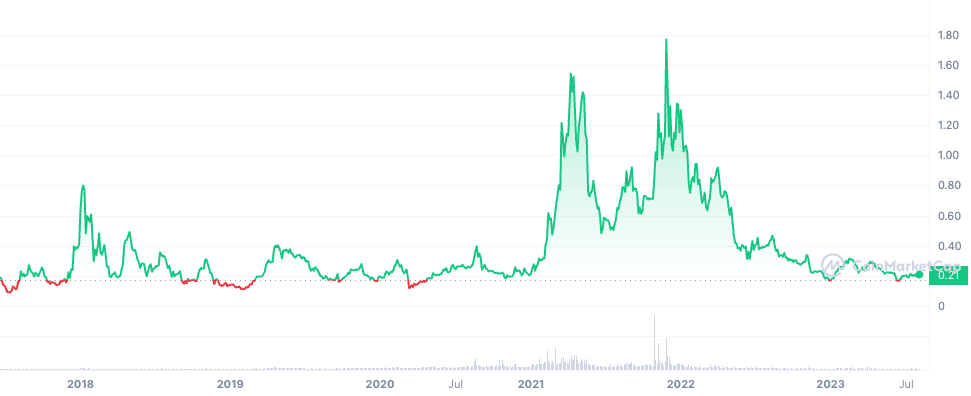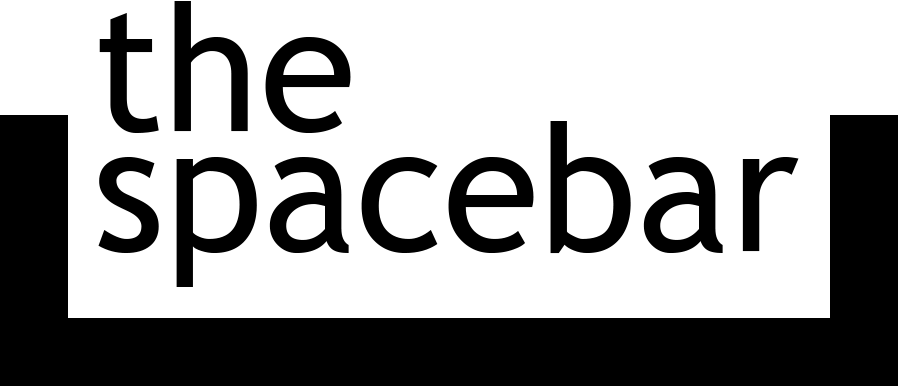Stop using Brave Browser
Seriously.

The Brave web browser has carved out a niche over the past few years as an alternative to Google Chrome, Mozilla Firefox, and other mainstream web browsers. Some of that has come from its marketing as a privacy-preserving web browser, and it has also been repeatedly evangelized by cryptocurrency enthusiasts.
If someone recommends Brave to you, you should ignore them, because they are wrong. Brave Browser is a mess of a software project, and the company building it is even worse.
The Hateful Browser
Brave Software, the company behind the browser of the same name, was founded by Brendan Eich. He's best known as the creator of JavaScript from his days at Netscape Communications, and he was later the co-founder of Mozilla. He remained at Mozilla Foundation and its for-profit segment, Mozilla Corporation, well into the 2000s. In 2014, he was appointed as CEO of Mozilla Corporation, which immediately caused backlash from at least a few people inside Mozilla and many people outside the organization.
Why was appointing Eich as CEO so controversial? It's because he donated $1,000 in support of California's Proposition 8 in 2008, which was a proposed amendment to California's state constitution to ban same-sex marriage. Eich wrote a blog post defending himself in 2012, when the donation was initially discovered, where did not apologize and denied the donation made him a bigot:
Ignoring the abusive comments, I’m left with charges that I hate and I’m a bigot, based solely on the donation. Now “hate” and “bigot” are well-defined words. I say these charges are false and unjust.
First, I have been online for almost 30 years. I’ve led an open source project for 14 years. I speak regularly at conferences around the world, and socialize with members of the Mozilla, JavaScript, and other web developer communities. I challenge anyone to cite an incident where I displayed hatred, or ever treated someone less than respectfully because of group affinity or individual identity.
Second, the donation does not in itself constitute evidence of animosity. Those asserting this are not providing a reasoned argument, rather they are labeling dissenters to cast them out of polite society. To such assertions, I can only respond: “no”.
In other words, because he silently donated to causes seeking to strip rights from minority groups instead of directly harassing them, the outrage was unjustified. Okay, Brendan.
The appointment was a full-on PR disaster for Mozilla, and as an example of how far-reaching the criticism became, OkCupid started showing a popup to its Firefox visitors about the donations and suggested switching to another browser. Brendan Eich quit after 11 days as CEO. He then went on to create Brave Software and obtain $2.5 million in early funding by late 2015, then another $4.5 million by mid-2016.
Here's a bonus fun fact: one of those early investors was Founders Fund, which is operated by Peter Thiel. He’s the billionaire who bankrolled Hulk Hogan's lawsuit against Gawker Media, which caused the site and its parent company to shut down, because a Gawker article previously outed him as gay. He’s also a regular campaign donor to far-right political candidates, and he keeps funding libertarian “seasteading” ships designed to function as independent cities in international waters (think BioShock), all of which have failed miserably.
The Ad Experiments
Targeted advertisements can be incredibly damaging to online privacy, because most of them rely on ad networks that purchase or quietly monitor your online behavior to serve personalized ads. That has given ad blockers a dual mandate — they make the web less annoying (at the expense of web revenue), and protect your privacy online. The advertising industry is fighting back with increasingly-complicated detection methods for ad blockers, but as of right now, it’s still a cat-and-mouse battle.
From the start, Brave Software had a different idea than just blocking ads outright. The initial version of Brave allowed some advertisements hosted by the site itself (e.g. pre-roll ads on YouTube), and had a long-term goal of building its own advertising network. Here’s what Brendan Eich said in 2016:
By default Brave will insert ads only in a few standard-sized spaces. We find those spaces via a cloud robot (so users don’t have to suffer, even a few canaries per screen size-profile, with ad delays and battery draining). We will target ads based on browser-side intent signals phrased in a standard vocabulary, and without a persistent user id or highly re-identifiable cookie. […] We hope our users will form a valuable enough audience that our browser-side anonymous targeting will get ads from the buy side organically. We don’t want to play games.
Brave’s plan was to remove most of the third-party advertisements in a page, create its own ad units based on data collected by the web browser itself, and then split the revenue with publishers. Brave said originally that it was aiming for at least 55% of the money to go to the publisher, with the eventual goal of giving 70% of the revenue to the publisher. The web browser user would also receive a cut.
The Newspaper Association of America responded with cease-and-desist letter to Brave Software, calling the ad replacements “blatantly illegal” and insisting it amounted to “republication” of copyrighted content. Brad Flora, who was previously Director of Business Development at Brave, said this never ended up happening:
My understanding of things from conversations since I've joined in July 2018 is that when Brave launched, they put out a lot of info about stuff they were _going_ to do, and one of those ideas was to replace ads. However soon after launch, a lot of folks in the company and outside of the company explained to management that this was a really stupid idea and would be scummy. So Brave never went forward with it though it was a talking point to journalists early on. You could argue that having an idea to do a scummy thing two years ago is very bad. I'd like to think it's good when startups listen to feedback and adjust their product plans accordingly.
Brave started a 1,000-user trial of its advertising network in 2018. The program rewarded Brave users with Basic Attention Tokens (BAT), based on how long they spent viewing ads and content, which would then be kept in a digital wallet or given to publishers as a sort of tipping system. That system hasn’t significantly changed since then, but some of the ad formats are different now. Brave’s website explains that the ads are served in search results in Brave Search, the New Tab page, the Brave News newsfeed, and notifications.
BAT is a cryptocurrency. That means its value is highly volatile, and the initial coin offering (ICO) generated another $35 million for Brave in 2017. Brave users can’t redeem BAT for actual (fiat) money without first transferring it to another cryptocurrency wallet, and publishers/content creators are also paid in BAT. There’s an option for publishers/content creators to automatically convert the tokens earned into real money, but again, the value of BAT changes constantly.

Brave’s replacement for ads doesn’t reward users in a meaningful amount (reports in 2021 were around 2-6 BAT per month, which is $0.40-$1.25 on the current exchange rate), and requires publishers and content creators to jump through additional hoops to reclaim lost revenue from ad blockers. If the goal was to create a more fair payment system for content on the web, it has largely failed. It has generated a lot of revenue for Brave, though, so that’s nice.
Everything Else
Brave’s BAT was built around the cryptocurrency ecosystem (it’s an ERC20 token on the Ethereum blockchain), which helped it attract users from the crowd of crypto enthusiasts. Brave Software continued to bake in more crypto-adjacent functionality over time, billing itself as the ultimate browser for crypto and web 3.0. A full crypto wallet was added in 2021, replacing the original wallet built around BAT. It supports live and historical market graphs, sending and receiving crypto, managing NFTs, and interacting with decentralized apps (Dapps).
The past year has revealed how most of this ecosystem was built on overvalued startups, hype, and outright scams. Here are some of the companies, individuals, and organizations that Brave has worked with in the crypto industry:
- Starting with version 1.26 in June 2021, Brave Browser promoted the FTX crypto exchange with a widget on the new tab page, asking users to connect their FTX accounts to “view account balance, explore futures markets, and convert crypto.” FTX famously exploded in November 2022. Brave removed the FTX widget soon afterward, but as far as I’m aware, there was never an apology for directing users to FTX’s services for over a year.
- The fourth season of the Brave Marketer Podcast in 2022 included an episode with Steven Kalifowitz, then-CMO at Crypto.com, in which he shared “the strategies and tactics he’s implementing on his team’s quest to become a world renowned brand like Coke and Netflix.” The Financial Times reported in 2023 that Crypto.com was trading against its own customers, and in 2022, the company attempted to hide the full scale of its layoffs.
- Brave has an extensive partnership with Gemini, a crypo exchange, which powers widgets in the browser and external wallet support for BAT. Gemini is a crypto exchange, and the SEC charged Gemini for offering unregistered securities in January 2023, and that same month, New York regulators started investigating claims that Gemini lied to customers about their deposits being FDIC-insured.
- Brave partnered with the 3XP Web3 Gaming Expo in June 2023 to be the sponsor of the event’s Esports Arena, and the BAT token was used to reward tournament winners. An Axios report of the event painted a bleak picture.
Brave was also caught up in a privacy scandal in 2020, when it was revealed that the browser was adding affiliate codes to some URLs typed into the address bar. For example, typing in “binance.us” would add Brave’s affiliate link to the end, allowing Brave Software to collect revenue from signups or purchases. Brendan Eich called that “a mistake,” and the functionality was later turned off. That should have been enough to swear off Brave as a privacy-centric browser forever, considering the entire point of affiliate links is to collect data about the user and traffic source. For example, when you click an Amazon affiliate link in a web article, the publisher can see the exact products you purchase in the timeframe the tracking cookie remains active (which is currently 24 hours). The weird people defending Brave online will point to the revenue sources for other browsers as the same thing — Vivaldi adds sponsored bookmarks on the new tab page, for example — but I’m not aware of another browser ever rewriting what the user types in the address bar.
Ultimately, Brave Browser is the apparatus of an advertising company, a bloated and complicated experience for the average user, and the pet project of the person kicked out of Mozilla for continuing to defend harmful political donations. If you want a privacy-focused web browser, use Firefox or Vivaldi. If you want to support your favorite content creators and publishers, turn on advertisements or support them through the methods they already support (Patreon, Ko-Fi, and so on). Brave Browser is irredeemable, and you should not use it under any circumstances.




